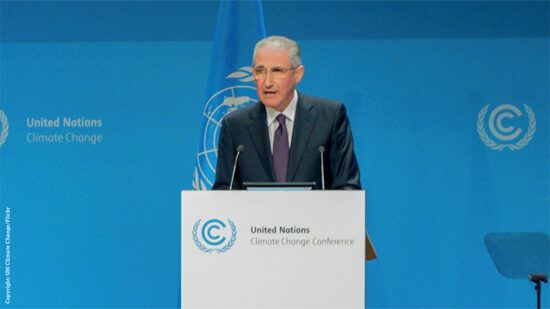Less than three years since the Covid-19 pandemic started we are facing another social emergency – spiralling living costs are affecting populations across the globe and are pushing millions into poverty in the UK.
Consumer Price Index inflation in the UK in October was 11.1%, Retail Price Index inflation was 14.2% and the Office for Budget Responsibility has predicted the country is due to see the biggest drop in household living standards since the 1950s.
While fund groups may be keen to stress they are not new to stewardship activity around remuneration, they are now asking companies to urgently make changes that support employees through this crisis.
Asset manager CCLA recently coordinated an investor statement after an earlier request for information from the 100 largest-listed employers in the UK showed not enough was being done to protect employees during the cost-of-living crisis. Of the 58 companies which responded by the time the investor statement was published, it was those with the most staff on low wages – in food production, hospitality and retail – CCLA found, which had the least support measures for staff in place.
More than more pay
Peter Hugh Smith, CCLA CEO, told ESG Clarity why companies were being asked to prioritise urgent measures such as one-off payments rather than just salary increases for the lowest paid that are most vulnerable to increasing costs of essentials such as food, fuel and energy.
Technically, he said, a pay increase should suffice for employees. However, in practice this can be too slow to implement when there is data to gather and processes to follow and companies tend to award pay rises on an annual cycle.
“A pay rise is for life and you want to make sure you get it right but today the most important thing is to make sure is that people can navigate the coming cold months so they can pay their heating and they can eat,” said Hugh Smith.
Discounts and hardship funds are further measures among those employees are offering while some are not financial in nature at all. Employee assistance like providing a mental health hotline and debt counselling were also noted among responses to CCLA’s request for information from corporates.
Liveable wages
Cash remains the central question however and Amy Wilson, lead engager for Europe, EOS at Federated Hermes, said the crisis has brought the question of living wages sharply into focus.
Among the responses to CCLA’s September letter, only 25 companies confirmed they are accredited real living wage employers and six said they benchmark wages against the real living wage but are not accredited.
Angeli Benham, senior ESG manager at Legal & General Investment Management (LGIM), said the cost-of-living crisis has accelerated the need for companies to “step up” on the living wage. She said her team had already been asking companies globally to pay a living wage to their employees and ensure workers in their supply chain are paid a living wage.
“We have announced we expect companies to be doing this and to disclose the fact by 2025. If they haven’t disclosed any activity in terms of paying living wages and they haven’t set up any kind of strategy to tackle poverty in their supply chains by 2025, LGIM will start to vote against the approval of the annual report,” said Benham.
LGIM co-filed a resolution with ShareAction against Sainsbury’s earlier this year asking the supermarket chain to become living wage accredited.
She acknowledged accreditation was not straightforward for all employers and the accreditation itself was not as important as companies paying their employees sufficiently for them to meet their basic needs and have money to put aside.
“In fairness to Sainsbury’s despite the fact the resolution was lost they went ahead and made further increases to staff wages in early September.
“We didn’t target Sainsbury’s because they were a terrible outlier – it was that they were so close to being able to accredit that we just wanted to push them along a little bit further.
“We have been engaging with Tesco because they are somewhat of an outlier still. But we are not going to escalate anything because they have said they will look at wages again in January, including London rates.”
Finding a balance
As costs soar for households they are also rising for companies and asset managers said they are cognisant of this when engaging with them.
“We appreciate that the business outlook, with increased energy costs, supply chain challenges and rising prices, is challenging and uncertain and businesses themselves are under significant strain. In such circumstances there is an understandable rationale for controlling costs,” signatories of the investor statement wrote.
Benham pointed out how active owners need to strike a balance here as demanding too much of corporates could end up doing more harm than good to employees.
“Companies themselves are facing very difficult situations cost wise. And so we toned the wording little bit in the [CCLA statement]. Because what we don’t want to do is to is to put so much pressure on companies that they’re forced to do something that then hurts the business, which eventually hurts the employee,” she said.
Hugh Smith also described the need for a better balance between capital and labour than we have seen recently.
“I think in the era of cheap money over the last decade it has probably swung too much towards capital. We are now seeing a swing back to labour, how far that swing will be and what it will look like is very, very hard to predict.
“But actually, I think as investors we see that balance as healthy and we see that actually this is not bad for investors, not long term.”
In the short term, Hugh Smith said, it may mean a bit more of what could be paid out as dividends to having to go elsewhere in the business.
According to Wilson, a “clear and meaningful business purpose” should enable executives to navigate the right short-term actions to then fulfil their purpose over the long term.
“This is critical in a time of crisis – as we saw throughout the Covid-19 pandemic and may see again now during the cost-of-living crisis – when difficult trade-offs arise, particularly between shorter-term financial returns and maintaining strong relationships with key stakeholders, including government, the workforce, customers and supply chains,” she commented.
‘Egregious pay’
Castlefield partner, investment management, Ita McMahon, said as a result of the cost-of-living crisis and the swing back to labour Hugh Smith described, we could see a greater scrutiny on executive pay in the upcoming AGM season.
“I think that we’ll… see a lot of increased media scrutiny on pay resolutions at AGMs and I would hope we would get back to pre-pandemic times where egregious pay awards were quite widely being picked up in the financial press and regularly scrutinised,” she said.
For Wilson it is a case of executives not being “unduly insulated from the effects of the crisis where other stakeholders are not.”
See also:- IA warns extra restraint needed with executive pay
In line with this, Benham said part of her team’s stewardship activities on executive pay involve pushing back when LGIM is consulted on preposterous remuneration policies before they are made public.
“We have really pushed back on some companies looking to increase executive pay substantially. [We have said] this is not something we can support in this current climate. It is partly as a result of the cost-of-living crisis and partly because some of the numbers are just obscene,” she said.
Getting the data
As well as remuneration coming under closer scrutiny, companies should expect many more engagement questions like those CCLA sent out in September – ultimately attempting to establish how well staff are being protected during this crisis.
Castlefield recently voted to make the cost-of-living crisis an official part of its 2023 stewardship agenda and McMahon said this means they will likely be asking companies what proportion of employees are on a low wage and clarifying what has been done to support them in recent months.
It is easier to request the information than get the disclosures though. Martin Buttle, CCLA’s better work lead said one of the reasons they did not receive more disclosures was because a number of companies had collective bargaining agreements with trade unions underway.
“Some of those companies were less than forthcoming because they were in the middle of these negotiations and the outcome wasn’t [yet] clear,” said Buttle.
The firm plans to broaden the scope to more companies going forward and also get clarity in some areas like where it was not clear how many employees would be covered by one-off payments, for example.
Meanwhile, LGIM will be writing to Sustainalytics requesting it capture living wage data as, according Benham, after a lack of disclosure from companies, the biggest challenge in this area is data capture.
“[We will be] asking them to start capturing data on the living wage for the largest companies here in the UK, in the US and in Europe because we need to capture that data in order to enforce our voting policy,” she explained.
The letter also includes requests for data capture on zero-hour contracts, employees being offered more formal flexible contracts, training for upskilling and living wages being paid through the supply chain.
Innovating stewardship
In the process of working with other asset managers on this, LGIM has found a similar letter being drafted to Institutional Shareholder Services.
Hugh Smith noted many investors seemed keen to work more on this growing area of stewardship and he said he expects many more to sign the investor statement published last week. However, he noted, not all firms are able to move as quickly as CCLA which is able to act as a catalyst of change due to its small size and focus on sustainable investing.
It may be this role in rapidly innovating stewardship is increasingly needed as the investment industry continues to grapple with a series of, apparently unrelenting, global crises.








